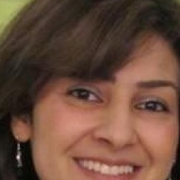Jury:
Reviewers:
Philippe ROOSE, Maître de Conférences HDR, Université de Pau et des Pays de l’Adour
Sophie CHABRIDON, Maître de Conférences HDR, Télécom SudParis
Examiners:
Bernard TOURANCHEAU, Professeur des Universités, Université Joseph Fourier
Philippe LALANDA, Professeur des Universités, Université Joseph Fourier
Jean-Marc PIERSON, Professeur des Universités, Université Paul Sabatier, Toulouse 3France
Advisors:
Frédéric LE MOUEL, Maître de conférences, INSA de Lyon
Stéphane FRENOT, Professeur des Universités, INSA de Lyon
Summary:
Not bounded by time and place, and having now a wide range of capabilities, smartphones are all-in-one always connected devices – the favorite devices selected by users as the most effective, convenient and necessary communication tools. Current applications developed for smartphones have to face a growing demand in functionalities – from users, in data collecting and storage – from IoT device in vicinity, in computing resources – for data analysis and user profiling; while – at the same time – they have to fit into a compact and constrained design, limited energy savings, and a relatively resource-poor execution environment. Using resource- rich systems is the classic solution introduced in Mobile Cloud Computing to overcome these mobile device limitations by remotely executing all or part of applications to cloud environments. The technique is known as application offloading.
Offloading to a cloud – implemented as geographically-distant data center – however introduces a great network latency that is not acceptable to smartphone users. Hence, massive offloading to a centralized architecture creates a bottleneck that prevents scalability required by the expanding market of IoT devices. Fog Computing has been introduced to bring back the storage and computation capabilities in the user vicinity or close to a needed location. Some architectures are emerging, but few algorithms exist to deal with the dynamic properties of these environments.
In this thesis, we focus our interest on designing ACOMMA, an Ant-inspired Collaborative Offloading Middleware for Mobile Applications that allowing to dynamically offload application partitions – at the same time – to several remote clouds or to spontaneously-created local clouds including devices in the vicinity. The main contributions of this thesis are twofold. If many middlewares dealt with one or more of offloading challenges, few proposed an open architecture based on services which is easy to use for any mobile device without any special requirement. Among the main challenges are the issues of what and when to offload in a dynamically changing environment where mobile device profile, context, and server properties play a considerable role in effectiveness. To this end, we develop bio-inspired decision-making algorithms: a dynamic bi-objective decision-making process with learning, and a decision-making process in collaboration with other mobile devices in the vicinity. We define an offloading mechanism with a fine-grained method-level application partitioning on its call graph. We use ant colony algorithms to optimize bi-objectively the CPU consumption and the total execution time – including the network latency.

